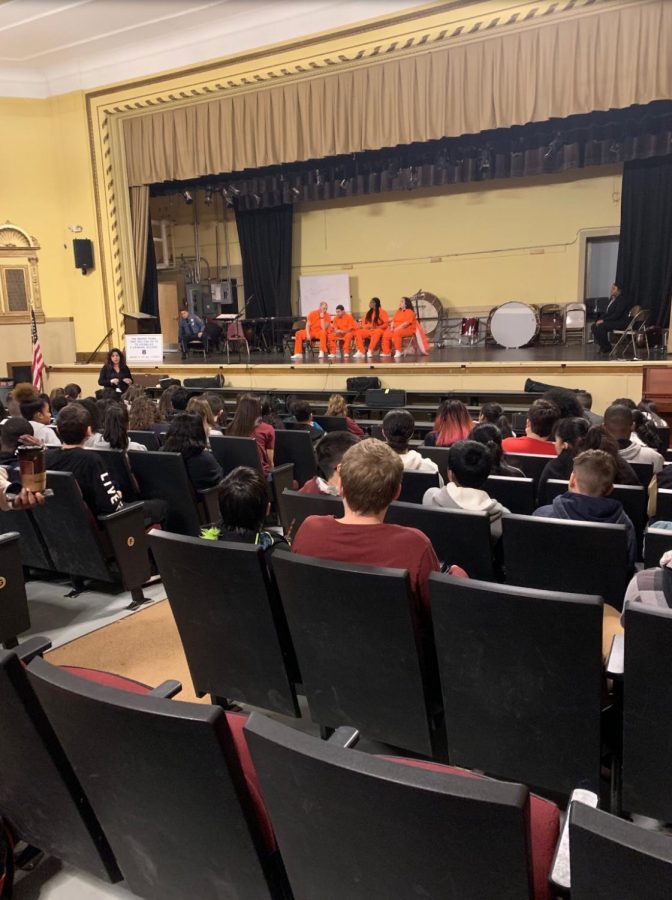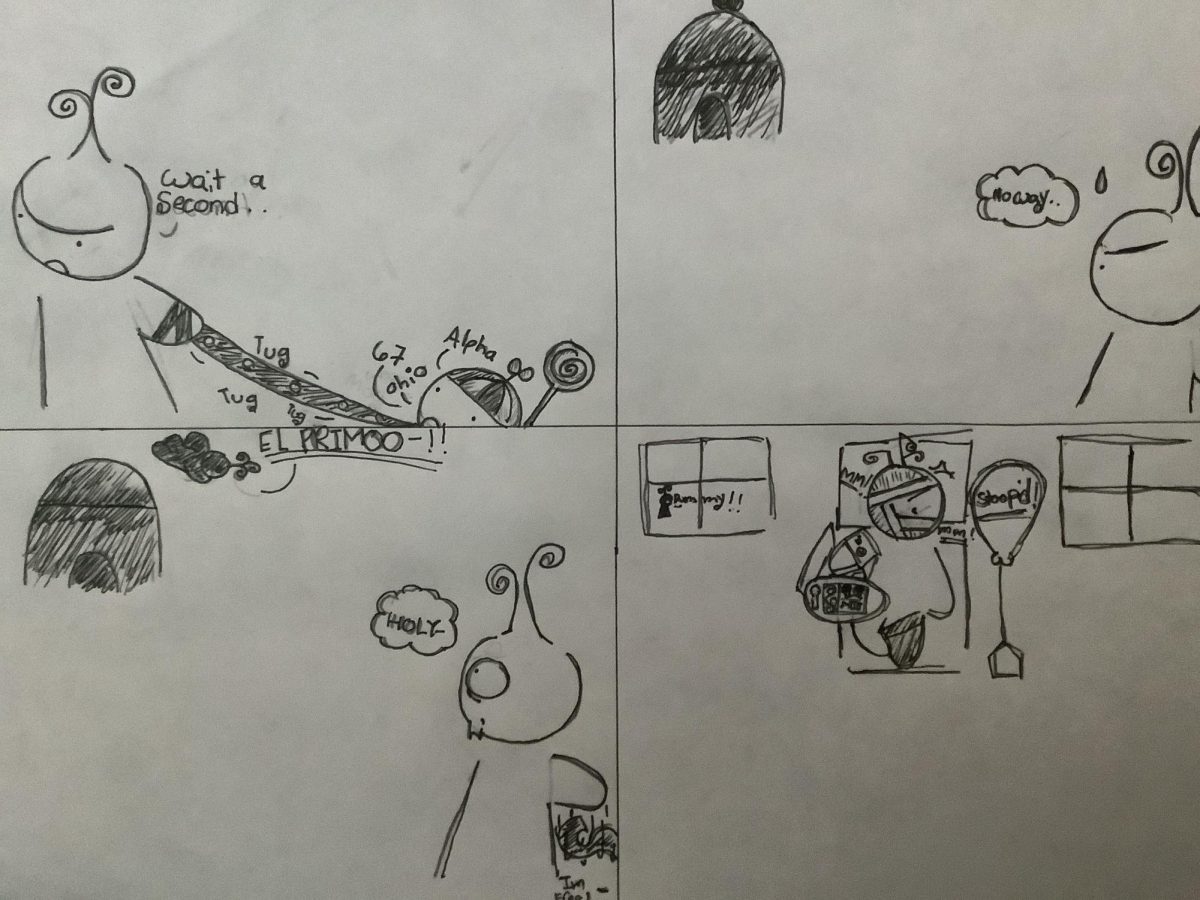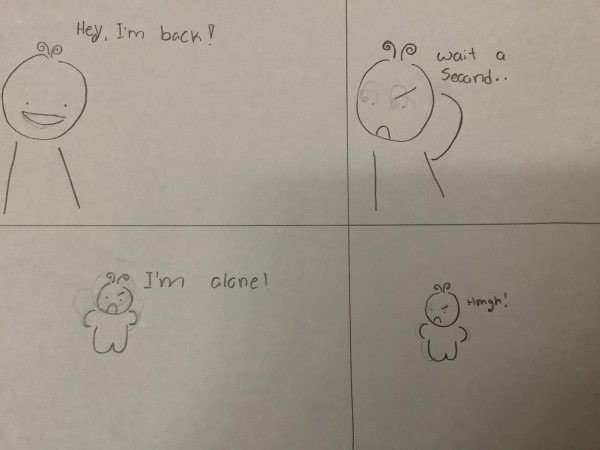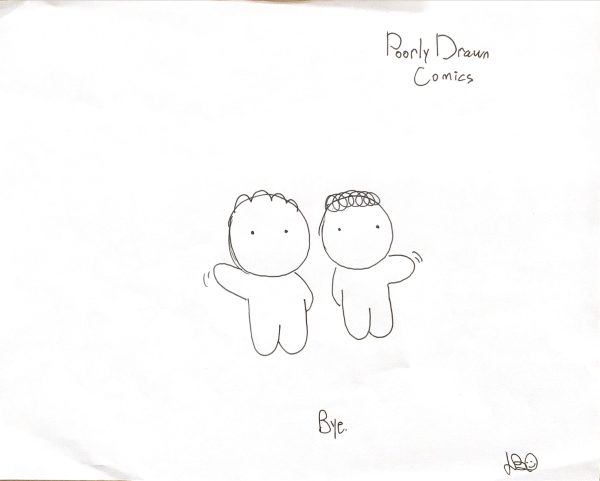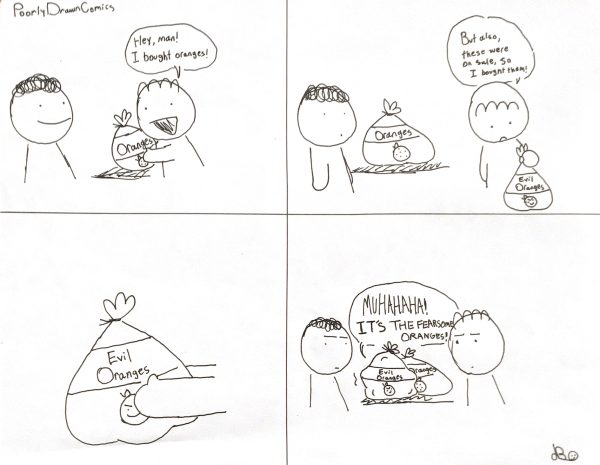Project PRIDE encourages good behavior in Woodbridge Middle
Four presenters on stage sharing their stories.
Mar 26, 2019
On February 7th, 2019, an organization by the name of Project PRIDE entered Woodbridge Middle School. This organization included 4 presenters who shared their perspective changing stories on how drugs, alcohol, violence, etc. isn’t the answer.
The names of these presenters are Edwin, Lisette, Anthony, and Keisha. Captivating the eyes of these eighth graders, their stories brought distinct views to not only the students, but the teachers and principals of WMS.
Guidance counselors Mrs. Torella and Mrs. Valente planned this organization so that every 8th grader could have the opportunity to comprehend the situations the presenters have been through and the consequences they suffered.
Edwin, sentenced for 10 years for a car accident, lost his wife because of a poor life choice that affected him and will probably affect him for the rest of his life. His family was well known in Camden because he sold drugs and his friends were in gangs. He had a child at young age, and he drank and became an abusive drinker.
One night he celebrated his job, which lead to him drinking that night. He had too much to drink which led to him becoming intoxicated. In this club he was in that night, he was dancing and was made fun of. In the mind of an intoxicated person, 99 times out of 100, one wouldn’t think straight. He became enraged, and popped his trunk, got a crowbar and broke the window of the person that made fun of him. His wife arrived to the club to pick him up, and he drove the car. He ended up driving the car into the marina, causing a severe head injury and his hands covered in blood. His wife ended up drowning in the marina.
Edwin’s advice was to “be mindful and be smart” in order to avoid falling into a bad string of events that could change one’s life for the negative.
The second presenter, Lisette, was from North Jersey. Her father was a drug dealer and her mother would constantly get high. She was always involved in her school’s extracurricular activities to avoid going home to her parents. She was close to her guidance counselor and talked to her about her problems. Lisette also hung out with an older crowd of kids who of which did bad things.
Once her seventh grade year came around, she started to simply not care about the feelings of others. And in 8th grade nobody acknowledged the things she did good which put her down. In High school, she picked up smoking, cutting school and taking pills. Lisette also started partying, which from a glance isn’t the best thing to do for yourself especially at such a young age. Sophomore year, she had kids, and her parenting style ended up being a reflection of her parent’s.
Eventually, she started working for Rutgers and wanted to help kids that were like her at that age. But as time passed, she had a bad friend that came into her life robbed people under the disguise of Lisette’s name. Lisette was dropped off at work and went to jail because of the robberies in her name-her, so called, friend took her car to complete the robberies. This led to her incarceration for 8 years. Her advice is to “pick the right friends and to be cautious about who you hang around with”.
The third presenter, Anthony, grew up with a good family, which breaks the trend of bad family situations. Anthony played sports growing up and was an only child. He also had friends on a varsity football team who were older than him. One day, his parents were on vacation and his older friends exposed him to alcohol and was peer pressured to drink. These friends also introduced him to smoking, which led to him smoking on a regular basis. Anthony ended up making the varsity football team and had good grades, but he was still drinking and smoking without anyone’s knowledge.
In his sophomore year, he got an injury and was prescribed a drug, percocet. He said “one pill made [him] feel complete”. He then abused this drug and made wrong decisions for his future. Senior year, one morning, his aunt called to tell him his father had passed. Anthony felt his “biggest fan” wasn’t there anymore. He then stopped trying to succeed and started going to Middlesex county college. He then sold drugs and was caught, leading to his probation. After his probation, he had an altercation with someone at a deli, and he was sentenced to 10 years in prison at that point. He has currently finished 7 of the 10. He then provided the 8th graders with visuals of the “luxuries” he was provided with while incarcerated, which was an incredibly small toothbrush, about the size of a finger, and and shoes with little to no protection. He said he “never thought [he] would be there in [his] life”.
The last presenter was Keisha. She was born in Newark and had 9 siblings. Both of her parents were alcoholics, and at only nine years, she “terrorized communities” by stealing. Keisha was highly neglected by her family and tried to “emulate their ways”. She felt she was a lost kid and needed love, but never received it because of her parents’ problems and her 9 siblings. At school, she would curse her teachers out, and with all these problems she was causing because of her family problems and where she was living, her parents wanted to send her to Georgia to live with her grandma, which she did not want to do.
In her high school, people tried to give her marijuana and smoke with them, but she would “fight [her] way out of it” because she didn’t want to be a target. Keisha had ambitions to play for the WNBA in college and was an MVP for 3 years. Even with all this going for her, she hung out with the wrong people.
One night, she was at a junior frat party and was introduced to marijuana and alcohol, which prevented her from succeeding in basketball and her classes. She ended up feeling lost and later became aggressive and disrespectful. Keisha started selling drugs and smoked and drank more. And sadly, she lost her best friend to violence. Keisha figured out that her happiness revolved around money, and went down the wrong path. She was later detained by the police and had to sit in a county jail. At first she was sentenced to 12 years in prison, but that later it was changed to 20 years. She has finished 16 years of her sentence. Her advice was “don’t have friends that [look you in the] face that say ‘I love you’ and cross you” And she continued her advice by saying “if your friend says they would go to jail for you, they’re not your friend” She explained how terrible jail is and how one of her friends said she would go to jail for her, but ended up making Keisha take the fault, landing her 20 years in prison.
Woodbridge Middle School principals Dr. Crowe and Mr. Harris shared similar beliefs to the advice of the presenters. “On the one hand, it’s good for students to see that our actions have consequences,” said Dr. Crowe,. “On the other hand, it’s also good to see that people can redeem themselves, and lead a productive life”. Dr. Crowe said he feels “strongly” that this is a good program, and it is beneficial not only for the kids of this school, but societies’ kids as a whole. He also thinks that not only the eighth grade should be taught this lesson, but 6th and 7th as well, but “not necessarily all at once”. Mr. Harris also feels that this should be taught to more than just the 8th grade. He also thinks 6th and 7th grade need to experience it as well, and since Mr. Harris was a former high school vice principal for two years, he said “They definitely need to hit high schools.”
Some teachers at WMS also had important views on this project. Ms. Dudley, a language arts and digital literacy teacher, said she felt that it was “an excellent program so that we have a chance to understand what somebody else’s experience is to help us make better choices”. In her classes, she also made a google forms on this very event. Some of the questions were: Do you think this program will positively influence the lives of students?, Identify 3 things that resonate with you from today’s assembly, What did you learn with regards to the talk of the friendship? Some of the students felt that this event wouldn’t positively influence the lives of students, and she was astonished. Ms. Dudley said she felt that this was something that is “really, really, really, relevant”, and she would’ve expected it to be an undoubted “yes”.
Mr. Salinas, a World Language Survey Course teacher and spanish teacher at WMS had feelings similar to Ms. Dudley’s on this project. “[He thinks] it’s an effective tool to try to minimize and prevent stuff from happening.” He also said it’s a “prevention method”. Since this project is only held in this school once a year to eighth graders, he feels they should be held “At least 3-4 times a year. So that kids understand that there are consequences to certain actions that they take.” Most of the administrators and staff in this school shared the same opinions with little to no differences.
Some of the kids were impacted by this event. Julius Rankins, an 8th grader in WMS, felt he could “kind of relate to” and “[he’s] seen and been through stuff like that.”
Gianna Ruttler, also an 8th grade student from WMS, had feelings attached with this presentation. She thought “it taught people a lesson” and she said she “saw people crying”, which depicts that the 8th grade students really took into account the presenters side of things, and how their actions could possibly lead to a bad future.

